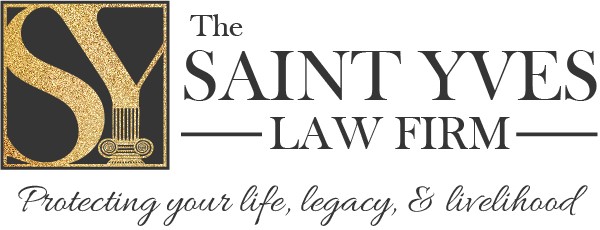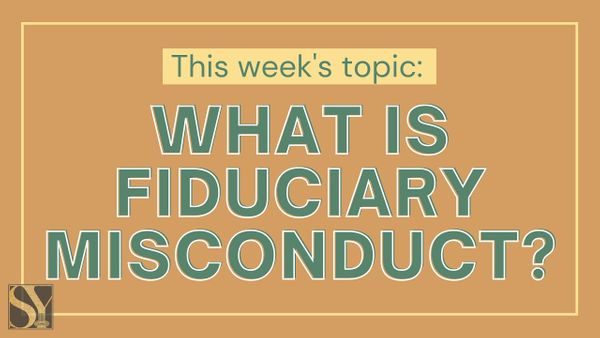Updated: Oct 18, 2021
When you hire an attorney to help you with any type of case, trust or legal issue, that person is working for you in the capacity of a fiduciary, and needs to maintain the proper fiduciary duty with you in all dealings. Put simply, a fiduciary is just a person who stands in your shoes, or who is acting for you legally in your interest. The fiduciary is definitely an agent for you, who knows the law better than you do, and can help you m
anage and resolve your legal issues, whatever they may turn out to be.
As the fiduciary of your legal issues, that attorney that you hire is bound by the law to act accordingly to always keep your legal best interests at the forefront of your dealings. For example, if an attorney is hired by you, that person will not be looking to see how the attorney himself or herself can benefit from the case, transactions or legal issue. Your attorney needs to work only for you, is hired by you, and should keep your interests as the main priority of why you two are together in the first (and last) place.
Types of Formal Fiduciary Duties
There is a standard duty that all attorneys must abide by when working with clients. The attorney working for you on your legal issue needs to hold himself or herself to the highest possible standard of care when managing your legal issue. This means that the attorney at all times needs to talk to you, update you and converse with you in good faith to try to resolve your legal issues in the best way possible.
Conflicts of Interest
This stands to reason that no attorney should have a vested interest in gaining from your legal problem. If the attorney is putting the attorney’s needs or wants ahead of the client’s, this is a conflict of interest. As the fiduciary for your legal case, your attorney needs to make sure that there is no appearance of impropriety, or no conflict of interest where the attorney’s stated or unstated personal interest will color the outcome of working with you on a case or legal issue.
Financial Control of Your Assets
The attorney as a fiduciary has authority over the client’s assets, money or other assets in trust, etc., and for this reason there must be ultimate trust between you and your attorney. As the controller of your assets and even finances, the trust relationship with your attorney should meet the highest standard. These standards will apply ethically and professionally to your attorney in relation to all dealings with you regarding your property, assets and financial assets or trusts.
Misconduct by an Attorney
Any time that an attorney as the fiduciary of your legal case acts with bias, or in a non-professional way, that attorney may be acting outside of the duties of a fiduciary. If an attorney is not communicating with you, does not update you with professional and accurate records regarding the estate or trust transactions, does not keep sequential records or has missing records, or otherwise has questionable behaviors in relation to how the legal case is being handled: this attorney may be in a scenario of being a fiduciary who has breached the duties of the fiduciary relationship with you.
What to Do If the Attorney is Unprofessional?
If your attorney appears to be acting outside of the bounds of a professional and ethical fiduciary relationship with you, it is possible for you to report the attorney to the state bar. Keep a detailed record of all correspondence, records and telephone call conversations. If there is just a misunderstanding, talk to the attorney and express your concerns with the idea that the attorney needs to talk to you to update you on all that is happening with your legal case or issue in a timely manner. If you have other questions regarding whether your attorney has breached his or her fiduciary duty with you, call the Saint Yves Law firm to discuss the matter further. We will talk to you confidentially regarding any concerns that you may have on this matter.


